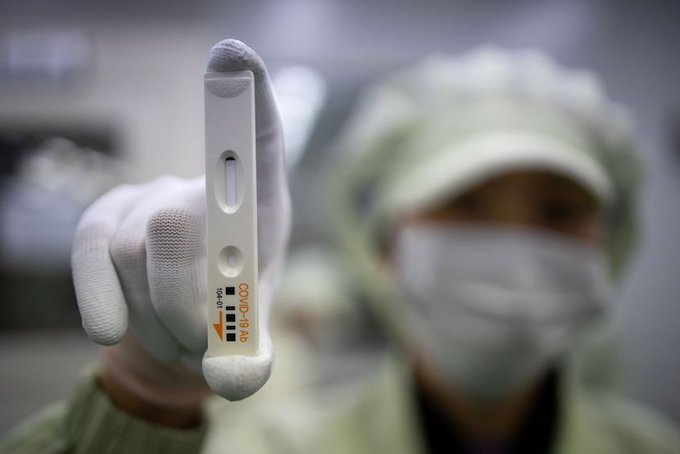The government says purpose of the roll out is to effect the provisions of the level 1 travel regulations, which stipulate that all travelers who arrive at a port of entry without a certified negative SARS-CoV-2 PCR test result (not older than 72 hours) must be tested at the point of entry before entering the country.
Antigen tests (different from antibody tests) detect the presence of a specific viral antigen, which implies current viral infection.
The advantage of the antigen test is that, unlike the PCR test, the results are available in 15 minutes.
In consideration of the logistical complications that a point of entry PCR test poses and the additional mitigation measures in place, Cabinet resolved to implement testing at points of entry using the antigen test.
Government is also aware that some of the neighbouring countries, for example Lesotho, do not have the capacity to conduct PCR testing for all travelers destined for South Africa.
Antigen testing will therefore enable the management of the influx of travelers without certified PCR tests.
An additional consideration was the cost effectiveness of the exercise- at a fee of about R150 – R170; antigen tests cost much less than PCR tests.
Government wishes to emphasize to all travelers that the cost of the antigen test shall be borne by the traveler and not South Africa or their country of origin.
Travelers are implored to ensure that they make the necessary arrangements to be able to effect payment at the point of entry.
The World Health Organisation (WHO) recently approved the use of rapid antigen tests as a point of care diagnostic for COVID-19 for screening and surveillance tool in the community where a rapid result is required at low cost.
Supply of antigen tests
The South African Health Products Regulatory Authority (SAHPRA) has granted emergency use authorization for two companies to supply antigen tests.
There is anticipation that more of these tests will become available from other suppliers.
The National Health Laboratory Service (NHLS) will be procuring these tests initially for use at ports of entry.
In time, as more kits become available, these tests will be rolled out in community surveillance programmes.
Antigen test
The antigen test is conducted by collecting a sample from the naso-oropharyngeal area, in the same manner as a PCR test, and therefore sample collection must be done by a professional and cannot be done by an individual at home.
It is important to be aware that the PCR test remains the gold standard, given that it has much higher sensitivity and specificity than the rapid antigen test.
All travelers are implored to adhere to the regulations and ensure that, where possible, they complete processing their PCR tests not more than 72 hours prior to their departure or arrival at a port of entry in South Africa.
Procedure at port of entry
However, in the event of a traveler arriving at a port of entry without a certified negative PCR test, this shall be the procedure:
- The traveler will be screened for signs and symptoms on arrival.
- Upon failure to produce a certified PCR test result, the traveler will be directed to a testing facility at the port of entry.
- A staff member from NHLS will collect the samples and conduct the test immediately.
- The cost shall be borne by the traveler and the NHLS shall be remunerated upon testing. Travelers must be prepared to pay out of pocket (approximately ZAR150 – 170) and claim the fees from their health insurance service provider (pending the relevant insurance agreement).
- If the traveler tests negative, he/ she will be allowed to proceed through the port of entry provided they have been cleared of red flags at the screening phase.
- If the traveler tests positive he/ she will be required to quarantine at a facility designated by that particular port of entry. They will not be permitted to travel across provinces.
- Contacts of a traveler testing positive at the point of entry, including those who were in proximity of the traveler within the conveyance, will also be tracked and traced.
- Travelers who arrive without a certified PCR test and who refuse to test at the port of entry will not be permitted entry into the Republic and will be required to quarantine at a designated facility.
Citizens and visitors are also encouraged to download the COVID-Alert App which is safe, secure and user friendly.


